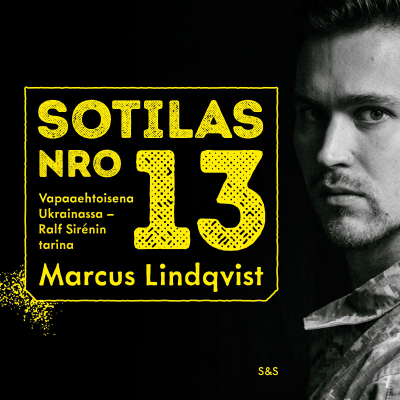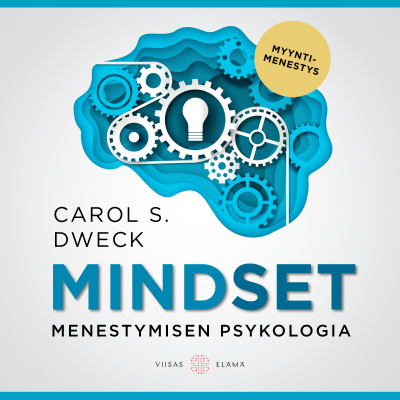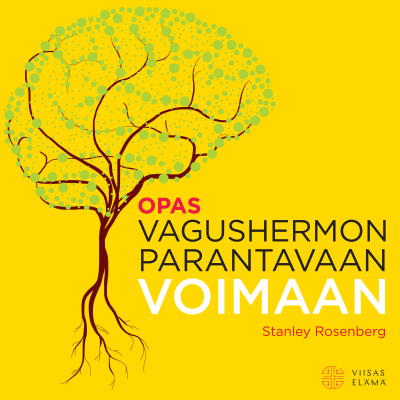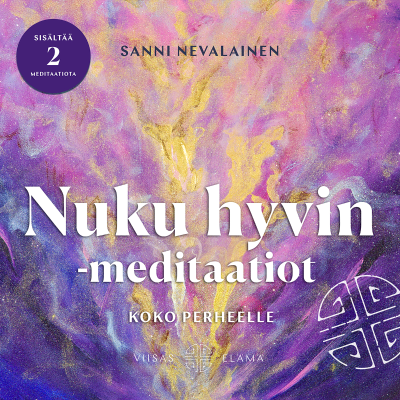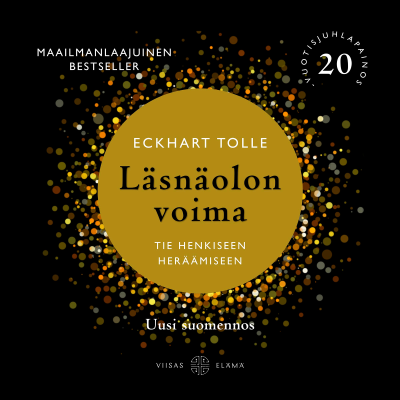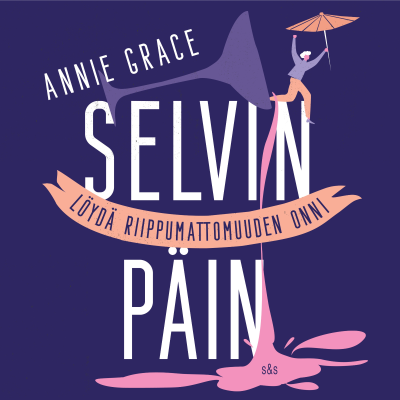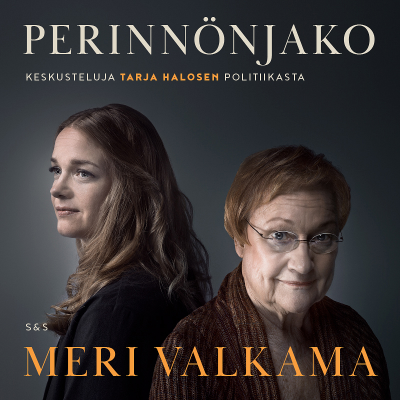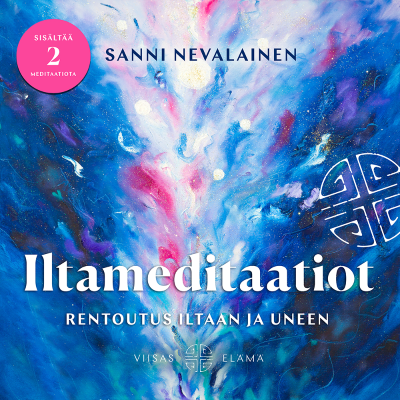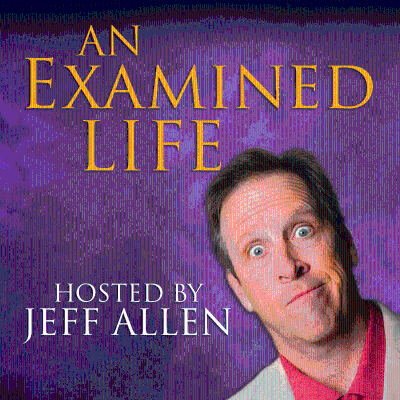
An Examined Life with Jeff Allen
englanti
Rajoitettu tarjous
2 kuukautta hintaan 1 €
Sitten 7,99 € / kuukausiPeru milloin tahansa.
- Podimon podcastit
- Lataa offline-käyttöön
Lisää An Examined Life with Jeff Allen
Comedian Jeff Allen (Nashville) dives into his own stories and sits down with friends, associates & perfect strangers to discuss various perspectives and stories as they examine their lives.
Kaikki jaksot
20 jaksotAn Examined Life with Jeff Allen 54: Atheism, Humanism, Abortion and Christian Worldview with Nancy Pearcey, part 3
Nancy Pearcey, author of books such as How Now Shall We Live and Total Truth and visiting scholar at Houston Baptist University, joins us on today’s show. Jeff Allen: So, what do you have on the horizon? Nancy Pearcey: Well, I’m currently working on a book on ethical issues, such as abortion, homosexuality, and euthanasia. Most books on this subject are either about what the Bible says or moral reasoning. I’m showing the worldview, the view of the human person. You cannot really argue morality directly. A person’s morality is always derivative from their worldview. So, you need to go a layer deeper and argue for the worldview itself. Now, it turns out that secular thinking is driven by a singular worldview that has a low, reductionist view of the human person. This gives us the possibility to make a positive argument for our worldview. We need to get beyond “Don’t! It’s wrong! That’s a sin!” That doesn’t work. What we can do is argue that Christianity gives a much higher view of the human person and that Christian morality respects the human person and grants much higher dignity to the human person than the modern reductionist, materialist view does. So, it’s going to give us an opportunity to shift to a much more positive argument that shows that Christianity is appealing, attractive, and inviting. I think it’ll give us a different tone as we approach not only secular people, but also other young people who are very confused about these issues. Jeff: Well, that’s what changed my life. Really knowing that I was created and designed changed everything for me and gave me self-respect and dignity. You are currently involved in the intelligent design movement, so what do you think of ethical humanism, the catchphrase for the humanist movement? Nancy: We’re made in God’s image, so people can be good. But, they can’t justify it. They can’t explain why we are human beings or why there is an objective morality. In fact, they can’t be humanist, let alone the “ethical” part, because humanism is the view that humans have some sort of special dignity. There’s a contemporary British philosopher named John Gray, who is an extreme materialist, forever castigating humanists for being inconsistent. He says, “You humanists are materialists, just like me. So, why do you think there is any basis for human status being higher than the rest of nature? Logically speaking, you have no basis for what you’re saying, and what you are saying you are grabbing from Christianity. The atheist attempt to have human dignity is just a derivative of Christianity.” He has countless articles on this subject. In my book, I quote a man who is an atheist, Darwinist, and evolutionist, who admitted that survival of the fittest cannot be the basis for universal human rights and that he has “freeloaded from Christianity.” We need to help people see that these people do not have a basis and borrow from Christianity. In Finding Truth, I love being able to show this from the mouths of atheists. That’s one of the best ways to design your apologetics; look at the ways that people recognize that something is missing. When they reach over and borrow from Christianity, that is their way of admitting that their system does not give them a good basis for universal human rights or dignity. Then you know that you’re answering the questions that people really have. Take the issue of abortion. People say, “Well, abortion is okay, until it becomes a person.” At which point you say,
An Examined Life with Jeff Allen 54: Atheism, Humanism, Abortion and Christian Worldview with Nancy Pearcey, part 3
[https://christianpodcastcentral.com/wp-content/uploads/2016/03/An-Examined-Life-Featured-354x200.jpg]Nancy Pearcey, author of books such as How Now Shall We Live and Total Truth and visiting scholar at Houston Baptist University, joins us on today’s show. Jeff Allen: So, what do you have… The post An Examined Life with Jeff Allen 54: Atheism, Humanism, Abortion and Christian Worldview with Nancy Pearcey, part 3 [https://christianpodcastcentral.com/an-examined-life-with-jeff-allen-54-atheism-humanism-abortion-and-christian-worldview-with-nancy-pearcey-part-3/] appeared first on Christan Podcast Central [https://christianpodcastcentral.com].
An Examined Life with Jeff Allen: Christian Worldview with Nancy Pearcey, part 2
Nancy Pearcey, author of books such as How Now Shall We Live and Total Truth and visiting scholar at Houston Baptist University, joins us on today’s show. Jeff Allen: You have stated before that you were a skeptic and at one point slipped into a period of nihilism. Could you explain this period? Nancy Pearcey: When I was 19, I went to L’Abri and they knew the questions I had better than I did. As Christians, they had studied worldviews enough that they understood secular thought better than I did. So, for example, I would say, “You can’t say anything is right or wrong,” and they would inform that what I said was relativism, which I was completely unaware of at the time. Then, they’d take me back to where relativism came from and analyze the intellectual history that led up to it to give me a chance to think more critically about whether or not I wanted to really be a relativist. This is where Christians need to go. It’s like a sports team; not only do we need to know our own strategy, we need to know the strategy of the other side. If we know the other team’s strategy better than they know it, we will be prepared to counter it. That is the kind of education I got at L’Abri. At that time, because I had been a Christian, I knew that if there was no God there was no basis for morality. It was obvious to me that I needed to be relativist. As a skeptic, I thought that if it was just my puny brain within the vast reaches of time and space, then how could I be able to know some eternal objective truth. I even got into solipsism at one point, which is the thinking that all you can know is basically the inside of your own head. I was in High School and I dooodled cartoons of the whole world as just a thought bubble inside my head. That’s nihilism. Nihilism is when you get to the point you don’t think anything is real. Moral nihilism is when you think that there is no right or wrong, no good or evil. Metaphysical nihilism is when you believe that you can’t know any truth. I had definitely reached nihilism and there was no lower to go from there. I was obviously getting more and more depressed since I had no answers and thought there were none. This was an unpleasant, dark, and difficult time for me. I wouldn’t have lasted a whole lot longer if I hadn’t ran into questions that knew how to address such questions. Jeff: What were your parents going through as you were going through this? Nancy: My parents were clueless, which was part of the problem. People will say to me, “Wasn’t there anyone to speak into your life?” I always respond with “No, I was reaching out and asking questions and I couldn’t find any Christians that could answer my questions.” The main response when I asked these questions was, “What’s wrong with you? Why don’t you have more faith?” They treated my lack of faith as a moral failing and thought I had a problem. Therefore, I did not get people who treated intellectual questions seriously, and you can still see it today. Most youth groups act as though they just need to give children an intense emotional experience and a sense of belonging that will override their intellectual doubt. The statistics of those who drop away from of the faith when they leave high school to go to high are way too high. Obviously, it’s not working. We need to treat people with respect. Yes, we have a heart. Yes, we need to be treated well, emotionally, but we also have a mind. We need to respect that, the questions that young people have, and do the hard work to find the answers. A lot of times, we are scared that there are no answers or we just don’t want to do the hard work.
An Examined Life with Jeff Allen: Christian Worldview with Nancy Pearcey, part 2
[https://christianpodcastcentral.com/wp-content/uploads/2016/03/An-Examined-Life-Featured-354x200.jpg]Nancy Pearcey, author of books such as How Now Shall We Live and Total Truth and visiting scholar at Houston Baptist University, joins us on today’s show. Jeff Allen: You… The post An Examined Life with Jeff Allen: Christian Worldview with Nancy Pearcey, part 2 [https://christianpodcastcentral.com/an-examined-life-with-jeff-allen-christian-worldview-with-nancy-pearcey-part-2/] appeared first on Christan Podcast Central [https://christianpodcastcentral.com].
An Examined Life with Jeff Allen: Christian Worldview with Nancy Pearcey, part 1
Today, we welcome one of my favorite authors. I fell in love with her 2000 Gold Medallion Award winning book How Now Shall We Live? which she wrote with the late, great Chuck Coleson. Another of my favorites she wrote is Total Truth: Liberating Christianity from Its Cultural Captivity. This amazing author, educator, and Christian worldview expert is a professor at Houston Baptist University, and just an amazing woman – Nancy Pearcey. But, Nancy hasn’t always been the perfect representative of Christian worldview. She was raised in a Lutheran home and began questioning her parents’ beliefs and the structures she was surrounded with when she was in high school. So much so, that she claims that she actually “lost her faith” at that point. At the time, she went to a public high school, didn’t have any Christian friends, and began asking the most basic of questions, like “how do we know Christianity is true?” She wasn’t being rebellious. She wasn’t looking for an “out clause” nor wanting to escape Christianity’s moral restrictions. She was simply honestly pursuing truth. Unfortunately, Christian Apologetics wasn’t anywhere near as accessible as it is today, so neither her parents nor pastors could adequately answer her questions. At one point, she even asked a Christian College Professor why he was a Christ-follower and the best answer he could muster up was, “Well… it works for me.” One Seminary Dean told her “Don’t worry… we all have doubts sometimes”, as if it were just a psychological phase that she was experiencing. She couldn’t help but think, “If we all have doubts, then why don’t you have better answers for my doubts?!” Without any good answers coming her way, Nancy simply concluded that if you don’t have good reasons to believe in something, then you shouldn’t say you believe it – whether it’s Christianity or anything else. This all led to her trying vehemently to find the source of truth, ethics, morality and the like. Eventually, she concluded that there is no God, everything is relative, you do what’s right for you, and I’ll do what’s right for me. After all, scientists were proposing that we humans are just complex machines, anyway, so how could our tiny little brains even comprehend something as vast as “truth”? All this to say, she slid quite rapidly from church-going Christian to extreme skepticism and relativism. A couple years later, Nancy was going to school in Germany, and traveled to L’Abri in Switzerland, where she stumbled across the ministry of Francis Schaeffer. This was the first time that she discovered Christians who could engage with her intellectual questions regarding the Christian faith. These people were also into culture and art, and to top it all off, they were hippies, so that meant that they were cool! After reading theologians like Schaeffer and C.S. Lewis, she dedicated her life to following Jesus Christ. She then decided to travel back to L’Abri, since that was where she began being grounded and realizing what a Christian worldview was all about. In her book, The Soul of Science, Nancy discusses how Christianity gave rise to modern science, and the key ways it provided concepts like the Order of Nature. Yet, somehow, science eliminated God from the equation and along with Him, objective moral truth. All this was key to Nancy’s own conversion back to Christianity. You see, before she could even consider whether or not Christianity is true,
Valitse tilauksesi
Rajoitettu tarjous
Premium
Podimon podcastit
Lataa offline-käyttöön
Peru milloin tahansa
2 kuukautta hintaan 1 €
Sitten 7,99 € / kuukausi
Premium
20 tuntia äänikirjoja
Podimon podcastit
Lataa offline-käyttöön
Peru milloin tahansa
30 vrk ilmainen kokeilu
Sitten 9,99 € / kuukausi
Premium
100 tuntia äänikirjoja
Podimon podcastit
Lataa offline-käyttöön
Peru milloin tahansa
30 vrk ilmainen kokeilu
Sitten 19,99 € / kuukausi
2 kuukautta hintaan 1 €. Sitten 7,99 € / kuukausi. Peru milloin tahansa.










